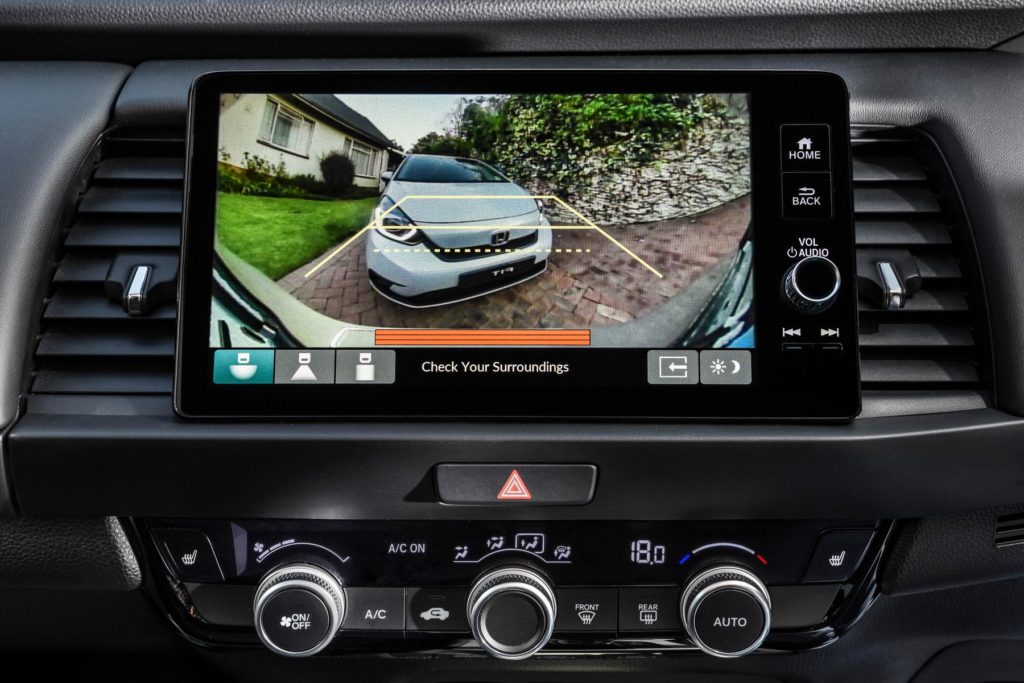What does the future of car insurance look like for the average driver, and how will these digital changes affect your overall car insurance premiums?
With an ever-changing economic landscape and the coming-of-age evolution of the car insurance industry, it is best to keep abreast of these changes for your financial benefit.
Imagine a digitalised world of car insurance where driving behaviour monitoring tools could help you save on your monthly insurance premiums? That future is not far off. With insurance companies looking for ways to streamline their car insurance packages and digitalisation is quickly growing as a means of doing just that. Digitised automation tools help provide a streamlined process as well as provide users with valuable insights.
As the digital world rapidly expands and the demand for seamless interaction grows, insurers are dependent on automated tools to deliver a seamless and well-integrated user experience.
Here are the three ways in which technology will be driving the future of auto insurance.

1. Digital
The inner workings of the car insurance industry are relatively the same as it has been since its inception. The assessment of risk and payment of claims has not changed much since the offset of the insurance industry.
Advancement in technology has not only provided tremendous room for growth and improvement but has also presented a unique set of challenges. By introducing the necessary automated tools to meet these demands, insurance companies can stand above their contemporaries.
Here are a few digital innovations sure to positively disrupt the car insurance industry with advanced automated technology.

Future digital technological advancements for car insurance
- Online sales technologies. Progressive technology will provide the insurer with state-of-the-art methods for targeting customers and analysing consumer patterns.
- Advanced analytics allows insurers a comprehensive insight into the specific needs of their clients.
- Machine learning allows information systems to adjust to new data without having to reprogram the system.
- The internet of things is a convergence of multiple technologies such as real-time analytics and machine learning.
The versatility of the digital landscape combined with the advancement in technology will be beneficial to the car insurance industry.

How digitising car insurance will be beneficial for future sustainability:
- An enhanced digital experience can boost overall customer satisfaction levels.
- Digital enhancements and technological advancements can save the car insurance industry money by reducing costs.
- A digitalised approach to car insurance will significantly increase organisational speed and agility.
- The digital journey provided by car insurance companies can drastically reduce the loopholes needed to complete the customers’ online journey.
An evolving digital landscape allows insurers to utilise data gathered from social media platforms such as Facebook, LinkedIn, and Twitter for a more holistic insurance experience. Social media platforms connect insurers with customers, growing brand awareness and sales outreach.

2. Predictive
Simply put, predictive analytics provide the necessary insight into customers’ behaviour and can flag potential fraud risks, among other things. Predictive technology allows the insurer to understand the customer in a more precise and targeted manner. Essentially, predictive analytics keeps track of a customer’s online historical data.
Predictive analytic tools assist in forecasting events while providing valuable insight into consumer patterns, making for a more customised solution. Car insurance policyholders could benefit from these advancements by enjoying lower premiums based on the data collected from predictive analytics. Not only does the customer benefit from predictive analytics, but the incorporation of predictive analytics into the claims management and underwriting process also proves to be profitable for the car insurance industry. There are a few more benefits associated with predictive analytics for car insurance.

Benefits of predictive analytics for car insurance:
- The use of predictive analytics can anticipate customer trends and needs. Because the car insurance industry is so competitive, forecasting events ahead of time allows the insurer to minimise risk while keeping abreast of the latest consumer trends.
- The data gathered from social media platforms can assist insurers with customer service satisfaction levels by solving general insurance issues relatively quickly. Predictive analytics has the potential to bridge the gap between consumer satisfaction and customer service delivery.
- Predictive analytics can assist insurers by helping to identify specific target markets, increasing potential sales and new insurance prospects.
- Identifying a client’s potential risk of cancellation is vital to the car insurance industry. Predictive analytics can help insurance specialists to establish which customers are most likely to lower their coverage or cancel entirely. Armed with this valuable information, insurers can plan accordingly. Predictive analytics provide the insight needed for contingency plans that boost the sustainability of the car insurance industry.
- The last and most beneficial of predictive analytics is that it allows an insurer to identify potential fraud before it happens. Predictive analytics can flag potential fraud ahead of time, minimising the risk factor for insurers.
The two main advantages offered by predictive analytic tools are detailed insight and a cost-effective approach to problem-solving. Here are a few more ways in which predictive analytics will shape (or may already be shaping!) the future of car insurance.

How predictive analytics will shape the future of car insurance:
- The traditional and slow approach to underwriting in the car insurance industry will be radically transformed and reshaped by the advancement of predictive analytics. Because of the speed and efficiency with which predictive analytics can process data, the process of underwriting is faster and more accurate. The data collected by predictive analytic tools sift through multiple sources of online information, assesses potential risk based on a customer’s profile, and underwrites accordingly.
- Predictive analytics is steadily shaping the future of car insurance companies by gathering data from customers and workers alike. Predictive analytics allows the car insurance industry to meet clients at their point of need and retain existing clients. It also allows insurers to monitor staff and provide them with the tools that they will need to do their jobs more efficiently.
- Marketing in the motor insurance industry is vital for attracting new business. Using predictive analytics can assist insurers in identifying the most common and effective platforms to deliver their marketing content.
In essence, the use of predictive analytics helps insurers to create a database of valuable information. The information gathered from predictive analytics can revolutionise the car insurance industry by providing historical online customer data that predict future behaviours for both clients and staff.

3. Usage-Based
Gone are the days when your car insurance premiums are calculated on your age, demographic location, marital status, and the number of dependants. Usage-based car insurance will revolutionise car insurance premiums by resulting in cheaper premiums, drastically opening up the market for potential new business.
Usage-based car insurance calculates your monthly premiums based on the factual data retrieved from your vehicle via a mobile app or plug-in device. Technically, a usage-based approach means that your premiums depend on the actual amount of time you spend driving your car. The idea is that less time spent driving reduces the risk of an accident. Safe drivers also have an added advantage as the premiums decrease based on the safety levels of driving.
Usage-based car insurance models provide vital insight into the real-world driving experience of a car insurance policyholder. It also makes it possible to assess risk based on the individual’s real-time driving behaviour.
Usage-based car insurance works well for infrequent and safe drivers. There are, however, benefits associated with usage-based car insurance. Let’s have a look at what those are.

Other technology trends in the car insurance industry:
- Telematics– The inner workings of telematics technology combines telecommunications, vehicular technology, electrical engineering, and computer science to monitor moving vehicles. The ground-breaking advancement is wearable technology for your automobile and progressively tracks and monitors driving habits. As an example, our app comes with the option to activate Emergency Alert. Emergency Alert automatically detects whether you’ve been in a serious car accident directly from your phone and triggers an alert to our 24-hour emergency call centre to get you help as soon as possible.
- Conversational Chatbots-Gone are the days when car insurance queries were agent-driven. Conversational chatbots are now a popular and efficient means of assisting car insurance clients with everything from claims to general FAQs.
Given the ever-changing landscape of both the car insurance industry and the digital landscape, it is not difficult to see why the future of car insurance is heavily dependent on evolving with the digital times. Because of the competitive nature of the car insurance industry, it is crucial for car insurance companies to stay on top of the motor insurance game.

The use of automation tools in the car insurance industry is hastily reshaping the digital landscape, disrupting car insurance companies positively in the process. Technological advancements will only do more good for the future of car insurance in the long run by streamlining processes, cutting down on underwriting time, and making fraud detection easier. All in all, it is a win-win situation for both the insurer and the car insurance policyholder.
Keeping abreast of the changes at the forefront of the car insurance industry makes for exciting times ahead. Not only will digital, predictive, and usage-based car insurance take the edge off some already stressful car insurance processes, but it will provide a more comprehensive approach to car insurance as a whole.
Welcome to the future!
Source: Mi-Way Insurance






